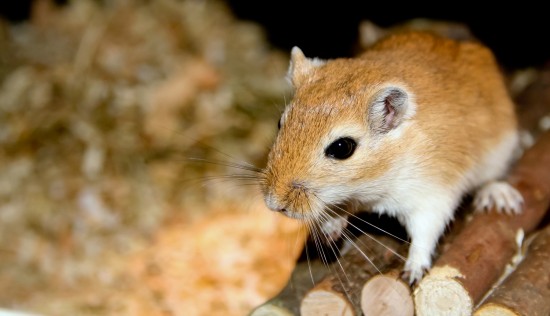You won't find much more frustrating than a type of pet you don't know how to appropriately provide care for. Whether providing care for Betta fish, dogs, cats, reptiles etc, they all have in common s...
You won't find much more frustrating than a type of pet you don't know how to appropriately provide care for. Whether providing care for Betta fish, dogs, cats, reptiles etc, they all have in common some lessons you need to learn to hope to become a successful Betta fish owner: What living accomodations are necessary? What should I give to it? What size portions should I feed it? What types of things might make my pet succumb to poor health? How can I avoid the pitfalls of illness and disease?
This article serves as an beginning reference for providing your finned friend the best existence possible while also giving you resources you will find helpful in Betta fish care.
Setting up a tank. Starting off, let's talk living space. You might be under the impression that these fish inhabit small puddles in Asia. Hold up, I want to be the very first to tell you that this is a huge load of you-know-what. While Betta fish native to the countries of south-eastern Asia, the rice paddies that they are living in are typically over one to two feet in depth and extend for many, many miles. With this in mind, it's no wonder why Bettas repeatedly become depressed and ill in those "neat" one gallon Betta cubes/vases.
Honestly folks: Try and get the largest fish tank that is within your budget/living space circumstances, I recommend anywhere from 5-10 gallons for a single Betta.As soon as you get a hold of your tank, it's time to obtain a heater that will easily maintain an ideal temperature between 78 to 82 degrees Fahrenheit. To promote positive bacteria growth and at the same time collecting dirty particles, you should also make sure to use a small filter.
"What to eat, what to eat?" In the realm of Betta fish sustenance wou might find yourself faced with a whole lot of options. The very first decision you will have to make is between food made up of of other organisms vs. those specifically engineered. Nothing like in the human world, the specially formulated Betta fish pellets and flakes are the better choice. Meaty foods will always be a well received treat, even so, these types of foods are high in fats and protein while at the same time being awfully low in necessary vitamins and nutrients. Don't take this the wrong way, when caring for Betta fish it is entirely alright to provide live foods, yet merely as a supplement to a processed food eating schedule.
The discussion between whether to use flakes or pellets is very much less "straightforward", but I've very often found pellets to be the best choice. This is because, unlike flake food, pellets are fairly uniform in size, it is much simpler to supervise your Betta fish's eating in number of pellets, whereas flake food intake might fluctuate when estimating the size of each individual flake.
Obvious symptoms of an ill fish. Betta fish are, unfortunately, generally prone to diseases, both parasite carried and environment induced. The principal danger signs to look out for are...
- Laziness/non-activity
- Little to no interest in sustenance
- Distended or blown up stomach/sides
- Gasping for air at the surface of aquarium
- Brown lines near the gills
- White discolorations on fins or body
Article Tags:
Betta Fish

 Should The Uk Reintroduce Compulsory Dog Licenses?
Should The Uk Rei
Should The Uk Reintroduce Compulsory Dog Licenses?
Should The Uk Rei
 Nasal Dermatitis In Gerbils Explained
Nasal Dermatitis
Nasal Dermatitis In Gerbils Explained
Nasal Dermatitis
 Blood-sugar Monitoring And Anomalies In The Diabetic Dog
Blood-sugar Monit
Blood-sugar Monitoring And Anomalies In The Diabetic Dog
Blood-sugar Monit
 Recognising Heat Stroke In Ferrets
Recognising Heat
Recognising Heat Stroke In Ferrets
Recognising Heat
 Is The Catalan Sheepdog A Good Choice Of Pet?
Is The Catalan Sh
Is The Catalan Sheepdog A Good Choice Of Pet?
Is The Catalan Sh